April 15, 2025 | 04:34 GMT +7
April 15, 2025 | 04:34 GMT +7
Hotline: 0913.378.918
April 15, 2025 | 04:34 GMT +7
Hotline: 0913.378.918
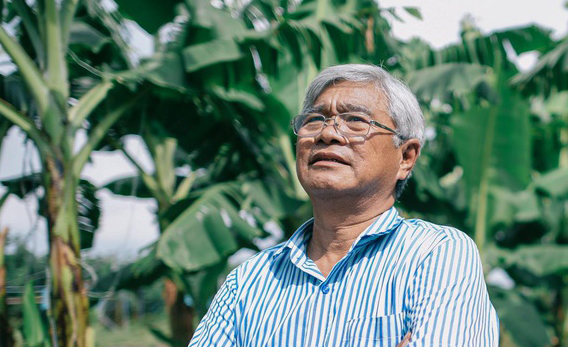
Mr. Vo Quang Huy - Director of Huy Long An Co., Ltd. Photo: Minh Phuc.
At the recent dialogue between Minister Le Minh Hoan and the "kings" of agricultural products in the South, Mr. Vo Quang Huy, Director of Huy Long An Co., Ltd., known as the "Banana King", said:
“We are currently facing many invisible factors affecting the operation of businesses and workers. During the most difficult days due to the Covid-19 pandemic, many banana orchards remained in the field without any harvester. Fortunately, my two large banana plantations in Long An and Tay Ninh provinces received great attention from the provincial leaders, and so the circulation problem was resolved.
“We have successfully exported 95% of our banana output, so the market stability is secured. We only have to face hardship in logistics and increased input prices as the price of banana show no signs of an increase."
Regarding Minister Le Minh Hoan’s "order" of “How to acquire sustainable agriculture production?” for the agro-product "kings", Mr. Huy analyzed that the three most important issues are land, capital sources, and market.
The Long An "Banana King" shared his story:
"When I was starting to develop sugarcane and rubber plantations, I likened myself to the "sparrows" of the sugar cane and rubber industry, while the giants at that time were "eagles".
“During the 1995-2000 period the Government implemented the "One million tons of sugar" program, and a lot of sugar factories had been built (52 factories). However, the disproportionately developed raw material area had led to many factories having to cease their existence and declare bankruptcy. Thus, the principle is that we must build the raw material area first, then invest in a comparable factory to ensure sustainability.”
According to Mr. Vo Quang Huy, many agricultural and forestry farms that are planned to grow sugar cane and rubber are in decline at the moment. Those lands are undergoing a new structural transformation in terms of agricultural production.
“I am once again searching for sugarcane and rubber areas to invite farmers to cooperate in growing bananas. I intend to establish banana cooperatives, but the matters concerning land use planning remain difficult,” said Mr. Huy.
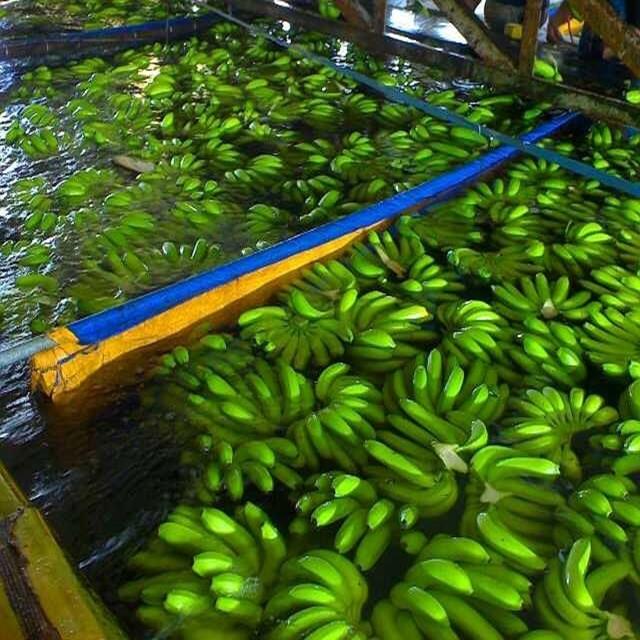
Banana is one of Vietnam’s potential export commodities. Photo: Minh Phuc.
Minister Le Minh Hoan often mentioned in forums and conferences his point of view: "build a nest for the sparrows to invite the eagles". Mr. Huy believed that this is very true and consistent with the current state of the agricultural industry.
Regarding the land policy issues, the Long An "Banana King" hoped that the Minister would propose to the Government policies to create favorable conditions for farmers to change the crop structure, "building a nest" for "the sparrows", and from there all “sparrows” would grow.
As for the investment capital issues, Mr. Huy thought that it was essential to find solutions to create a new capital transfer channel.
Farmers normally had three sources of capital: core capital, bank loans and investment capital from seed and input suppliers. However, after the Covid-19 pandemic, approximately 80% of agricultural laborers’ certificates of land use rights (the “red books”) and property ownership were in the bank. They had to mobilize capital through agro-materials supplying agents and enterprises.
The situation in Soc Trang could serve as a practical example. Many agents had invested a large amount of feed and shrimp seed for households, yet the households were now in no condition to afford the payment. Agents would likely be reluctant to invest in the future, and even if they did, they might charge a very high price. A new capital mobilization channel was therefore needed.
Farmers might borrow money from banks, but instead of disbursement the bank would coordinate with enterprises to provide fertilizers and animal feeds to farmers. The farmers would then be obliged to pay interest on the loan. Mr. Huy believed that this method would be very safe both for the bank and the farmers.
Translated by Samuel Pham
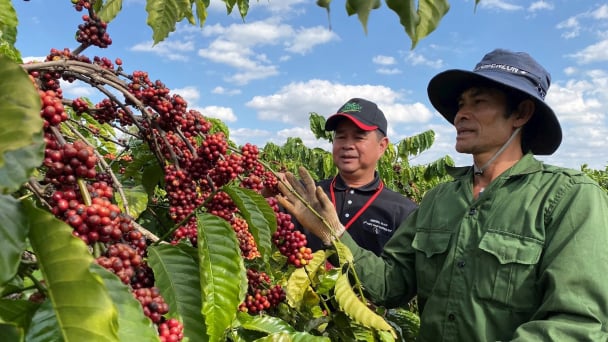
(VAN) Businesses emphasize fairness and equality when integrating social factors into their sustainable development strategies.
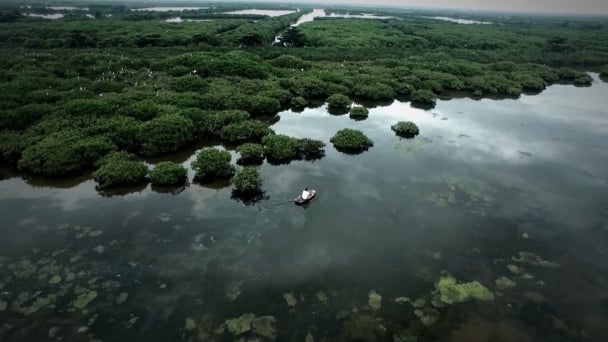
(VAN) French organizations and enterprises propose that Thai Binh province provide potential and long-term cooperation contents related to climate change response and green industrial development.
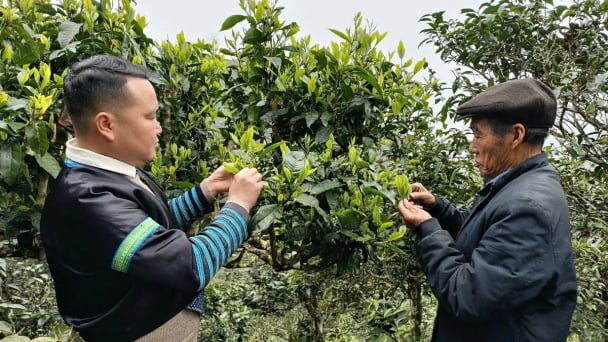
(VAN) Shan Tuyet tea is considered a 'heavenly treasure'. The H'mong people allow the tea to grow naturally, adhering to organic production principles, with the aim of exporting the product.
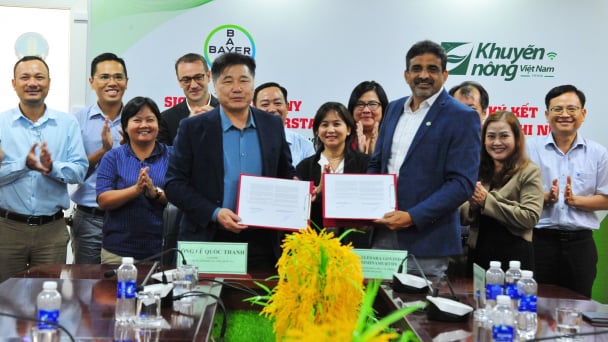
(VAN) Bayer Vietnam and the National Agricultural Extension Center have signed a partnership agreement to expand the development of effective and safe farming models for rice, durian, and coffee.
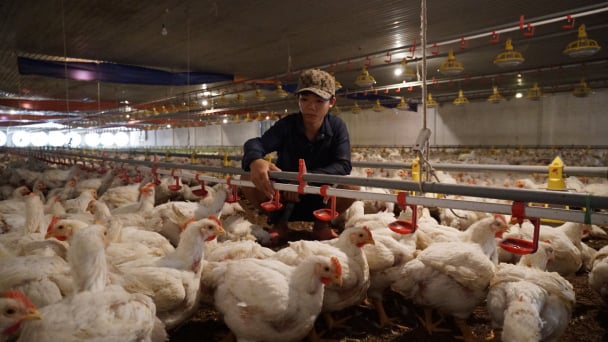
(VAN) Tay Ninh province possesses all the favorable conditions, from natural advantages to geographic location and social harmony, to drive economic development, particularly in attracting investment and advancing modern livestock farming.
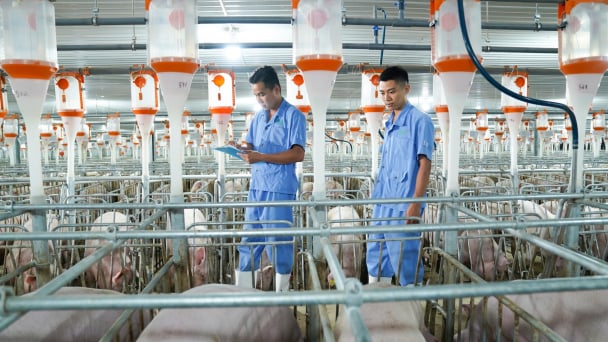
(VAN) Notably, every link in BAF's entire closed livestock value chain Feed - Farm - Food has received international certification.
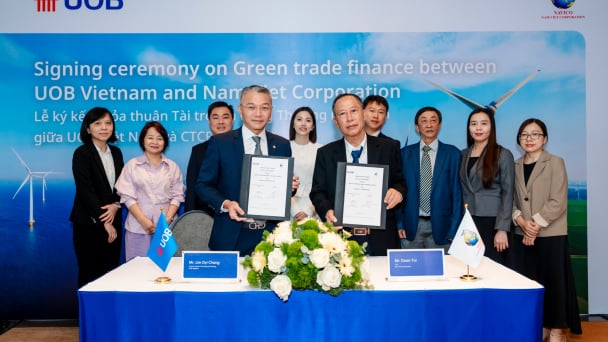
(VAN) UOB Vietnam has recently signed a green credit agreement with NAVICO to develop sustainable aquaculture that meets international standards.